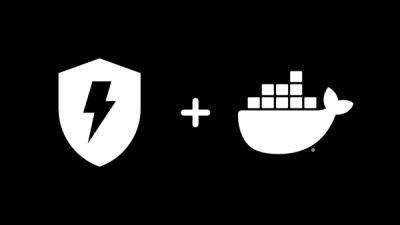Introduction



Inspired by the AWSLABS aws-serverless-express library tailor made for the Fastify web framework.
No use of internal sockets, makes use of Fastify's inject function.
Seems faster (as the name implies) than aws-serverless-express and aws-serverless-fastify 😉
👨🏻💻Installation
$ npm i @fastify/aws-lambda
Options
@fastify/aws-lambda can take options by passing them with : awsLambdaFastify(app, options)
| binaryMimeTypes | Array of binary MimeTypes to handle | [] |
| enforceBase64 | Function that receives the response and returns a boolean indicating if the response content is binary or not and should be base64-encoded | undefined |
| disableBase64Encoding | Disable base64 encoding of responses and omit the isBase64Encoded property. When undefined, it is automatically enabled when payloadAsStream is true and the request does not come from an ALB. | undefined |
| serializeLambdaArguments | Activate the serialization of lambda Event and Context in http header x-apigateway-event x-apigateway-context | false (was true for <v2.0.0) |
| decorateRequest | Decorates the fastify request with the lambda Event and Context request.awsLambda.event request.awsLambda.context | true |
| decorationPropertyName | The default property name for request decoration | awsLambda |
| callbackWaitsForEmptyEventLoop | See: Official Documentation | undefined |
| retainStage | Retain the stage part of the API Gateway URL | false |
| pathParameterUsedAsPath | Use a defined pathParameter as path (i.e. 'proxy') | false |
| parseCommaSeparatedQueryParams | Parse querystring with commas into an array of values. Affects the behavior of the querystring parser with commas while using Payload Format Version 2.0 | true |
| payloadAsStream | If set to true the response is a stream and can be used with awslambda.streamifyResponse | false |
| albMultiValueHeaders | Set to true if using ALB with multi value headers attribute | false |
📖Example
lambda.js
const awsLambdaFastify = require('@fastify/aws-lambda')
const app = require('./app')
const proxy = awsLambdaFastify(app)
exports.handler = proxy
app.js
const fastify = require('fastify')
const app = fastify()
app.get('/', (request, reply) => reply.send({ hello: 'world' }))
if (require.main === module) {
app.listen({ port: 3000 }, (err) => {
if (err) console.error(err)
console.log('server listening on 3000')
})
} else {
module.exports = app
}
When executed in your lambda function we don't need to listen to a specific port,
so we just export the app in this case.
The lambda.js file will use this export.
When you execute your Fastify application like always,
i.e. node app.js (the detection for this could be require.main === module),
you can normally listen to your port, so you can still run your Fastify function locally.
📣Hint
Lambda arguments
The original lambda event and context are passed via Fastify request and can be used like this:
app.get('/', (request, reply) => {
const event = request.awsLambda.event
const context = request.awsLambda.context
})
If you do not like it, you can disable this by setting the decorateRequest option to false.
Alternatively the original lambda event and context are passed via headers and can be used like this, if setting the serializeLambdaArguments option to true:
app.get('/', (request, reply) => {
const event = JSON.parse(decodeURIComponent(request.headers['x-apigateway-event']))
const context = JSON.parse(decodeURIComponent(request.headers['x-apigateway-context']))
})
Lower cold start latency
Since AWS Lambda now enables the use of ECMAScript (ES) modules in Node.js 14 runtimes, you could lower the cold start latency when used with Provisioned Concurrency thanks to the top-level await functionality.
We can use this by calling the fastify.ready() function outside of the Lambda handler function, like this:
import awsLambdaFastify from '@fastify/aws-lambda'
import app from './app.js'
export const handler = awsLambdaFastify(app)
await app.ready()
Here you can find the approriate issue discussing this feature.
Support for response streaming (payloadAsStream)
import awsLambdaFastify from '@fastify/aws-lambda'
import { promisify } from 'node:util'
import stream from 'node:stream'
import app from './app.js'
const pipeline = promisify(stream.pipeline)
const proxy = awsLambdaFastify(app, { payloadAsStream: true })
export const handler = awslambda.streamifyResponse(async (event, responseStream, context) => {
const { meta, stream } = await proxy(event, context)
responseStream = awslambda.HttpResponseStream.from(responseStream, meta)
await pipeline(stream, responseStream)
})
await app.ready()
Here you can find the approriate issue discussing this feature.
⚡️Some basic performance metrics
@fastify/aws-lambda (decorateRequest : false) x 56,892 ops/sec ±3.73% (79 runs sampled)
@fastify/aws-lambda x 56,571 ops/sec ±3.52% (82 runs sampled)
@fastify/aws-lambda (serializeLambdaArguments : true) x 56,499 ops/sec ±3.56% (76 runs sampled)
serverless-http x 45,867 ops/sec ±4.42% (83 runs sampled)
aws-serverless-fastify x 17,937 ops/sec ±1.83% (86 runs sampled)
aws-serverless-express x 16,647 ops/sec ±2.88% (87 runs sampled)
Fastest is @fastify/aws-lambda (decorateRequest : false), @fastify/aws-lambda
⚠️Considerations
- For apps that may not see traffic for several minutes at a time, you could see cold starts
- Stateless only
- API Gateway has a timeout of 29 seconds, and Lambda has a maximum execution time of 15 minutes. (Using Application Load Balancer has no timeout limit, so the lambda maximum execution time is relevant)
- If you are using another web framework beside Fastify (i.e. Connect, Express, Koa, Restana, Sails, Hapi, Restify) or want to use a more generic serverless proxy framework, have a look at: serverless-http or serverless-adapter
🎖Who is using it?

The logos displayed in this page are property of the respective organisations and they are
not distributed under the same license as @fastify/aws-lambda (MIT).






